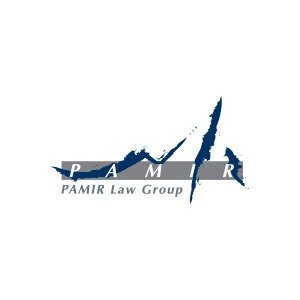Best ADR Mediation & Arbitration Lawyers in Taiwan
Share your needs with us, get contacted by law firms.
Free. Takes 2 min.
Or refine your search by selecting a city:
List of the best lawyers in Taiwan
About ADR Mediation & Arbitration Law in Taiwan
Alternative Dispute Resolution (ADR) in Taiwan includes mechanisms like mediation and arbitration, which serve as alternatives to traditional court litigation. These methods offer a private, faster, and potentially less expensive way to resolve disputes. Over the years, Taiwan has developed a robust legal framework for ADR, largely influenced by international practices. Mediation tends to focus on facilitating a mutually agreeable resolution between parties, led by a neutral third-party mediator. Arbitration involves a more formal process where an arbitrator makes a binding decision on a dispute.
Why You May Need a Lawyer
While ADR processes are designed to be more accessible than traditional court proceedings, having a lawyer can be advantageous in several scenarios:
- Complex Disputes: In cases involving complex commercial or contractual issues, legal representation can help navigate the nuanced implications.
- Ensuring Fairness: A lawyer can help ensure that mediation or arbitration proceedings are conducted fairly and equitably.
- Preparing Documentation: Drafting or reviewing agreements, submissions, or other legal documents often necessitates legal expertise.
- Representing Interests: A lawyer can advocate on your behalf, particularly in arbitration where the outcome is binding.
- Cross-Border Issues: In international disputes, understanding the interplay between Taiwanese and foreign legal standards might require specialized legal knowledge.
Local Laws Overview
The legal framework for ADR in Taiwan is primarily derived from the Arbitration Law and the Civil Procedure Code. Key aspects include:
- Voluntary Participation: Mediation is voluntary, while arbitration requires an agreement between parties to participate.
- Enforceability: Arbitration awards in Taiwan are enforceable like court judgments, while mediated agreements may need to be formalized to ensure compliance.
- Institutional Arbitration: Taiwan offers various institutional arbitration options, such as the Chinese Arbitration Association, to facilitate the process.
- Confidentiality: ADR proceedings are generally private, preserving confidentiality for all parties involved.
- Foreign Arbitration: Taiwan recognizes and enforces foreign arbitration awards under certain conditions, adhering to international standards like the New York Convention.
Frequently Asked Questions
What is the difference between mediation and arbitration?
Mediation involves a neutral facilitator to help parties reach a voluntary settlement, while arbitration is a formal process where an arbitrator makes a binding decision.
Is participation in ADR mandatory?
Participation in mediation is usually voluntary, whereas arbitration requires an agreement to arbitrate, typically prior included in a contract.
Can ADR be used for any dispute?
ADR is suitable for many disputes, including commercial, family, and labor matters, but may not be appropriate for criminal cases or certain statutory issues.
How long do ADR processes take?
The duration varies; mediation can potentially resolve disputes in a few sessions, while arbitration may take months depending on complexity.
How is an arbitrator selected?
Parties usually agree on an arbitrator or choose from a list provided by an arbitration institution.
Can I withdraw from mediation or arbitration?
Participants can often withdraw from mediation, but arbitration typically binds parties to see the process through once it begins.
Are ADR decisions confidential?
Yes, both mediation discussions and arbitration decisions are generally confidential under Taiwanese law unless disclosure is required by law.
Do I need a lawyer for ADR?
While not mandatory, having legal representation can be beneficial for protecting your interests and ensuring a fair process.
How are ADR agreements enforced?
Mediation agreements may need formalization for enforcement, whereas arbitration awards are enforceable like court judgments.
What happens if one party doesn't comply with an ADR agreement?
Non-compliance with a mediated agreement can lead to further legal action, whereas arbitration awards can be enforced through the court system.
Additional Resources
For further assistance, consider reaching out to the following bodies:
- Chinese Arbitration Association: Offers services and resources for arbitration processes in Taiwan.
- Legal Aid Foundation: Provides free or low-cost legal services to qualified individuals in Taiwan.
- Court Mediation Offices: Located within Taiwanese courts to assist with court-annexed mediation processes.
- Ministry of Justice, Taiwan: Provides information on legal frameworks and updates on ADR-related laws.
- Taipei Bar Association: Can help find qualified ADR attorneys in Taiwan.
Next Steps
If you seek legal assistance in ADR mediation and arbitration, consider the following steps:
- Assess the specific nature of your dispute and whether ADR is suitable.
- Research and reach out to a lawyer experienced in ADR in Taiwan to discuss your case.
- Gather all relevant documents and evidence related to your dispute.
- Consider contacting an arbitration or mediation institution for advice or procedural guidance.
- Stay informed about legal rights and obligations under Taiwan’s ADR laws to effectively participate in the process.
Lawzana helps you find the best lawyers and law firms in Taiwan through a curated and pre-screened list of qualified legal professionals. Our platform offers rankings and detailed profiles of attorneys and law firms, allowing you to compare based on practice areas, including ADR Mediation & Arbitration , experience, and client feedback.
Each profile includes a description of the firm's areas of practice, client reviews, team members and partners, year of establishment, spoken languages, office locations, contact information, social media presence, and any published articles or resources. Most firms on our platform speak English and are experienced in both local and international legal matters.
Get a quote from top-rated law firms in Taiwan — quickly, securely, and without unnecessary hassle.
Disclaimer:
The information provided on this page is for general informational purposes only and does not constitute legal advice. While we strive to ensure the accuracy and relevance of the content, legal information may change over time, and interpretations of the law can vary. You should always consult with a qualified legal professional for advice specific to your situation.
We disclaim all liability for actions taken or not taken based on the content of this page. If you believe any information is incorrect or outdated, please contact us, and we will review and update it where appropriate.
Browse adr mediation & arbitration law firms by city in Taiwan
Refine your search by selecting a city.











